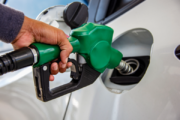Though direct deposit and mobile payment transfers are growing in popularity, plenty of people still deposit physical checks. However, checks can take a while to process, and may not be the most convenient option. This is because banks normally place a hold on some or all of check deposits, and you may not have immediate access to your entire deposit.
When you make a deposit, the money is not credited to the bank right away, says Anand Talwar, former head of deposits and president of Ally Invest Group. The check must go through a central clearinghouse operated by the Federal Reserve Bank. Once your bank receives the credit, it can make the money available to you.
“While some payments are pushed through right away, there are certain transactions that may require a temporary hold on the funds in your account,” he says.
How Fast Can You Get Access to Your Deposit?
The speed with which you can withdraw deposited funds depends on the type of deposit. According to the Federal Reserve, Regulation CC requires financial institutions to grant next-day access to these types of deposits:
— Cash deposited directly with employees
— Electronic payments, including wire transfers and ACH credits when the institution receives the funds and the account details for crediting
— U.S. Treasury checks, U.S. Postal Service money orders, Federal Reserve Bank checks, Federal Home Loan Bank checks, state or local government checks, cashier’s checks, certified checks and teller’s checks all deposited in person or at the institution’s ATMs
— Checks drawn on accounts within the same institution and deposited in person or via on-premises ATMs or night depositories
The Expedited Funds Availability Act mandates that the first $225 of a non-“next-day” check be available by the next day.
[Read: Best Checking Accounts.]
Why Did the Bank Place a Hold on My Check Deposit?
Financial institutions are allowed by law to impose longer but “reasonable” hold periods on deposits if:
— The account has been open for fewer than 30 days.
— The account has been overdrawn six or more times in the last six months for amounts under $5,525 or just twice in the last six months for higher amounts.
— The customer redeposits checks that were previously returned.
— The deposit exceeds $5,525.
— The check may not clear because it’s post-dated, dated over six months ago or drawn on an institution that says it won’t honor the check.
— There are emergency conditions like a natural disaster or outage.
Note that all financial institutions don’t necessarily hold their deposits as listed above, but Regulation CC allows them to do so. If you plan to open a new account and know you’ll need fast access to your deposits in the first 30 days, ask about it upfront.
The Federal Reserve says that a “reasonable” extended hold generally means one additional business day (total of two business days) for a bank’s own checks and five additional business days (total of seven) for most other checks. Longer holds are allowed, but the Fed warns that the institution may have to prove that its hold time is reasonable.
How Long Will the Hold Last?
The Federal Reserve has set baseline rules for check deposits: The first $225 must be available the next business day, while amounts from $226 to $5,525 must be available within two business days after the deposit, and amounts of over $5,525 generally should be accessible on the seventh business day. Weekends and bank holidays don’t count as business days.
Your institution may give you faster access than required. By law, banks must provide their check-holding policy to customers, so it shouldn’t be hard to find out.
[Read: Best Savings Accounts.]
Funds from a check deposited through the mobile app, an ATM or a branch are typically available by the next business day, says Paul Lussier, head of corporate function communications for Chase.
“We provide customers with their available balance after a deposit via a receipt,” he says. “Available funds can be used immediately to make purchases and payments.”
How Can I Avoid Long Holds on My Deposits?
To avoid the longer wait periods, you have several options. You can deposit cash or a cashier’s check. If you receive a physical paycheck, ask your employer if direct deposit is an option, because those funds are already cleared.
In most cases, depositing your check via mobile app won’t change its hold time, but verify this with your institution. Some may process these deposits sooner.
Checks can clear sooner if the person or business who wrote the check is a customer of your institution, Talwar says.
“Banks have the discretion to give you faster access,” he says. “For example, if you are an Ally customer and deposited someone’s check from an Ally Bank account into your Ally account, you would have immediate access to the funds.”
[Read: Best CD Rates.]
Be Careful About Check Holds
Until your check deposit clears and you see the amount deposited into your checking or savings account, avoid spending the money. If the check has not cleared and you use the funds to pay a bill or make a purchase, you might wind up with an overdraft fee. Such fees could cost up to $35 per transaction.
Check your balance by calling the bank or logging into your account. And Chase reminds us all that knowingly depositing bad checks and withdrawing the funds is flat out fraud.
“Regardless of what you see online, depositing a fraudulent check and withdrawing the funds from your account is fraud, plain and simple,” the bank says through a spokesperson.
More from U.S. News
What Is a Cashier’s Check and How Do I Get One?
Another Bank Has Been Accused of Fake Accounts. Keep an Eye on Yours.
What Should Savers Do After Fed Rate Cuts?
Check Holds: What You Need to Know originally appeared on usnews.com
Update 08/08/25: This story was previously published at an earlier date and has been updated with new information.







